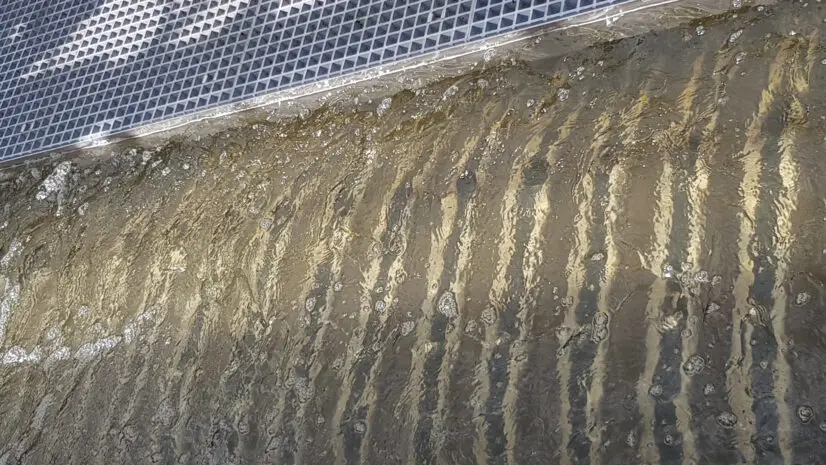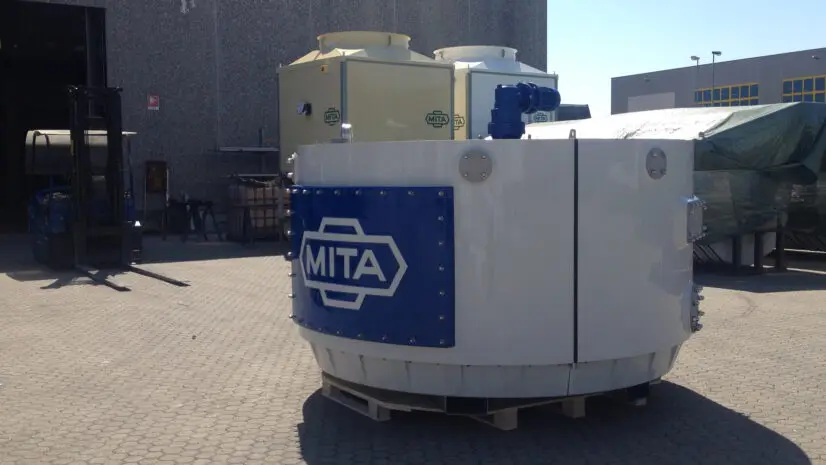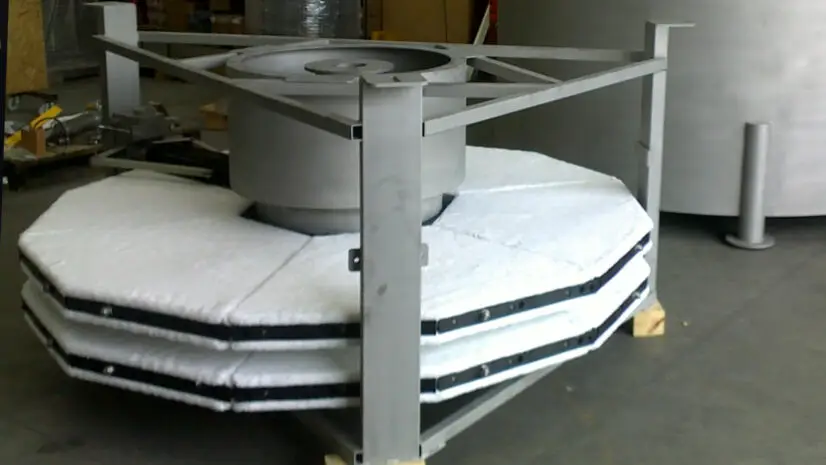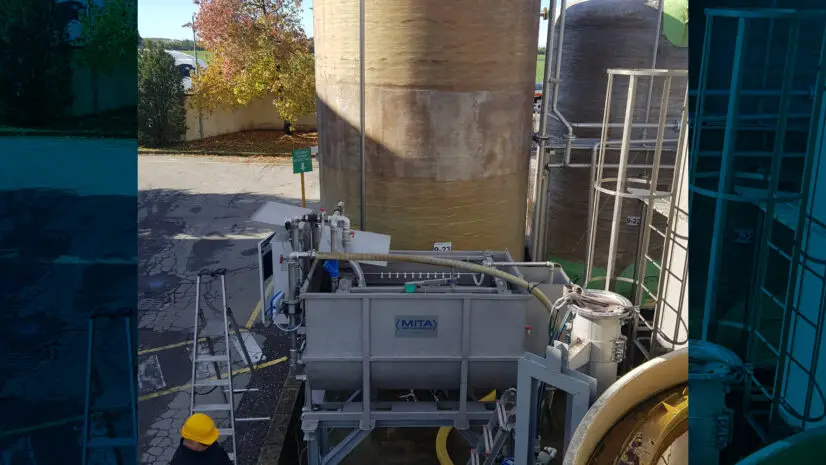Industrial Water Filtration with Pile Cloth Filters: 10 Advantages

They are the new ally of engineering firms and wastewater treatment consultants-these professionals can easily see how much demand is growing for pile cloth filters in clients’ plants. Consider here not only civil wastewater treatment plants, which have seen a permanent presence of these systems for municipal wastewater finishing for about two decades. Industrial process water treatment is also seeing them increasingly in the spotlight due to a range of functional and structural features appropriate for a wide variety of sectors.
So what are the main advantages of pile cloth filters for industrial wastewater treatment?
1. Background: the importance of industrial water treatment
It is first useful to frame the issue of process water treatment in industrial settings.
Water purification is often a source of discomfort for companies: it is an activity often carried out obtorto collo, with the sole objective of not incurring exorbitant penalties for improper discharge of process fluids into the sewer system or, in rare cases, into surface water bodies (rivers, lakes, sea). Often companies also consider the very limited space available-an additional reason to wisely evaluate the purification solutions on the market.
And yet they are also beginning to consider, rightly so, a considerable advantage enabled by proper depuration: treated water can first of all be effectively reused on-site in their own processes (production, machinery washing, cooling). Better to recover an exhaustible resource of great environmental and economic value instead of discharging it.
Not to mention, of course, the incredible contribution that circular production processes make to environmental sustainability.

2. Why tertiary filtration is important
In this framework, tertiary or final filtration represents the last step in the wastewater treatment process, aimed at removing minor traces of suspended solids and pollutants.
Current environmental regulations impose increasingly restrictive limits for wastewater discharge: currently, European regulations require values of 10 mg/L of total suspended solids (European Directive 2184 of 2020). Tertiary filtration enables full compliance with this regulation.
In addition, tertiary filtration is very useful when water is to be reused within the company’s production cycle: in fact, many company processes of production, machine cleaning and cooling can safely use water of comparable quality to the outputs allowed by tertiary filtration and, in particular, of pile cloth filters.
It should be pointed out that filtration alone is not always sufficient to treat all the effluent from industries, which is often heavily laden not only with suspended particles but also with organic matter (with very high BOD and COD values), oils or fats. Thus, in many cases, further treatment upstream of filtration is required. Once the need of the individual plant has been enucleated, primarily through pilot testing, cloth filters are able to perform best for effluent finishing: in integration with other technologies or as a stand-alone solution.

3. The 10 advantages of industrial water treatment using pile cloth filters
We have seen that wastewater filtration has many advantages, including for industry. Even more convenient for a wide variety of sectors is the installation of pile cloth filters, especially in their vertical axis version, for final wastewater management.
Here, then, are the 10 advantages found through their use with industrial wastewater.
- Compliance with environmental regulations: fleece filters first facilitate companies to comply with environmental discharge regulations (as seen, less than 10 mg/L of suspended solids).
- Very high filtration yields : not only is the quality of the effluent very high, but this is achieved with great process efficiency. This is due to the depth filtration of the fleece piles, which is more efficient than the surface filtration of the micro-net.
- Energy saving: an undoubted advantage of free-fiber ply filters lies in the gravity operation mode, which, therefore, requires little use of electricity only during the ply backwashing phase. This is an advantage particularly appreciated by industries, which are always conscious of saving resources.
- Small footprint: a particularly valuable feature in the version of vertical cloth filters, which is useful in industrial settings. Their compact design requires a very small installation area: ideal for tight spaces.
- Increased efficiency of production processes: the use of filtered water in production and auxiliary processes can improve the efficiency of those processes by reducing impurities and reducing energy use.
- Support for downstream treatment processes: cloth filters, with their efficiency, avoid excessive fouling of solutions that may be found at the end of the water treatment line (UV lamps, osmosis membranes). This is a very useful advantage in public water purifiers, but not to be underestimated in the case of large industrial treatment plants composed of many treatment processes.
- Ease of cleaning and maintenance: fleece filters are designed for easy cleaning and maintenance. The plies can be easily cleaned without providing for their removal from the filter, which reduces maintenance costs and ensures that the filter always operates at maximum efficiency.
- No additional ancillary work required: installation is also quick due to the fact that no “accessory” other than plumbing and electrical connections are required. Zero expensive excavation.
- Cost-effectiveness: due to the sum of the advantages mentioned here, the acquisition and product life cycle cost are much cheaper than other solutions, for the same filter surface area.
- Protection of ecosystems: wastewater treated with cloth filters can be discharged into rivers or other water bodies without incurring penalties, due to the high removal capacity of suspended solids.
4. Postscript: pile cloth filters in different industrial applications
These 10 advantages of pile (or “free-fiber”) cloth filters are demonstrated by the various areas in which they have been tested over the years. Below are just a few examples, based on the experience of MITA Water Technologies.
- Food & beverage
- Plastics industry
- Paper mills
- Chemical industry
- Industrial laundries

Resources
Needs of wastewater treatment
Discover the solution for all needsComparing different technologies
Find out all the different technologiesFind out more
All technical articlesOur Newsletter
Sign up for the MITA Water Technologies newsletter: stay up-to-date on systems for municipal and industrial wastewater treatment and filtration.